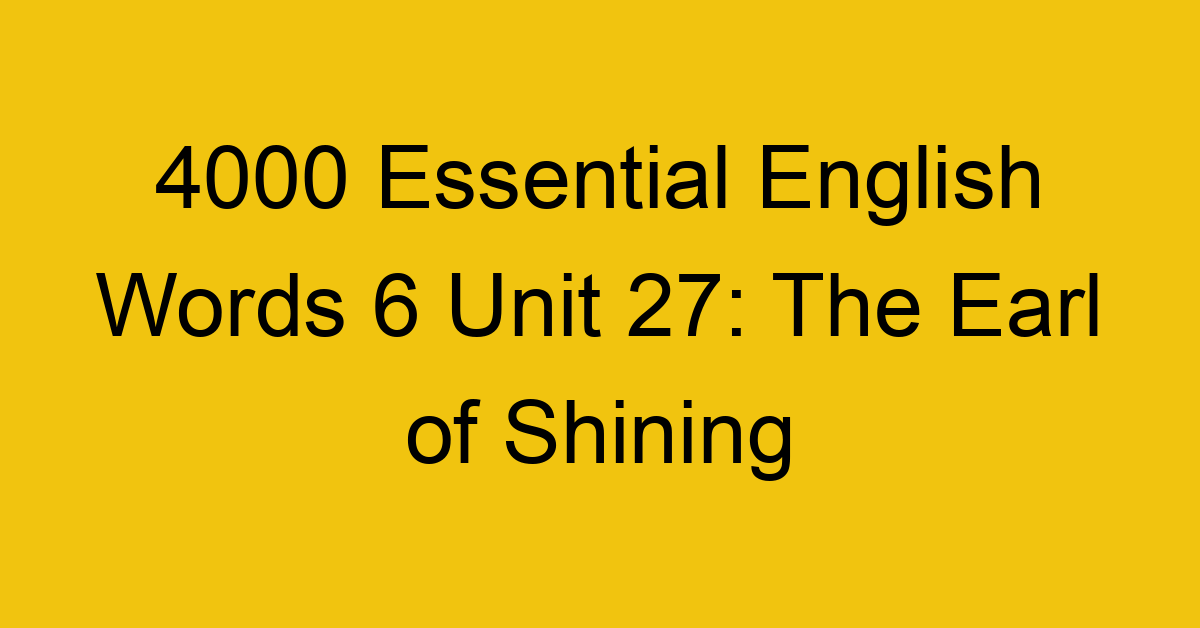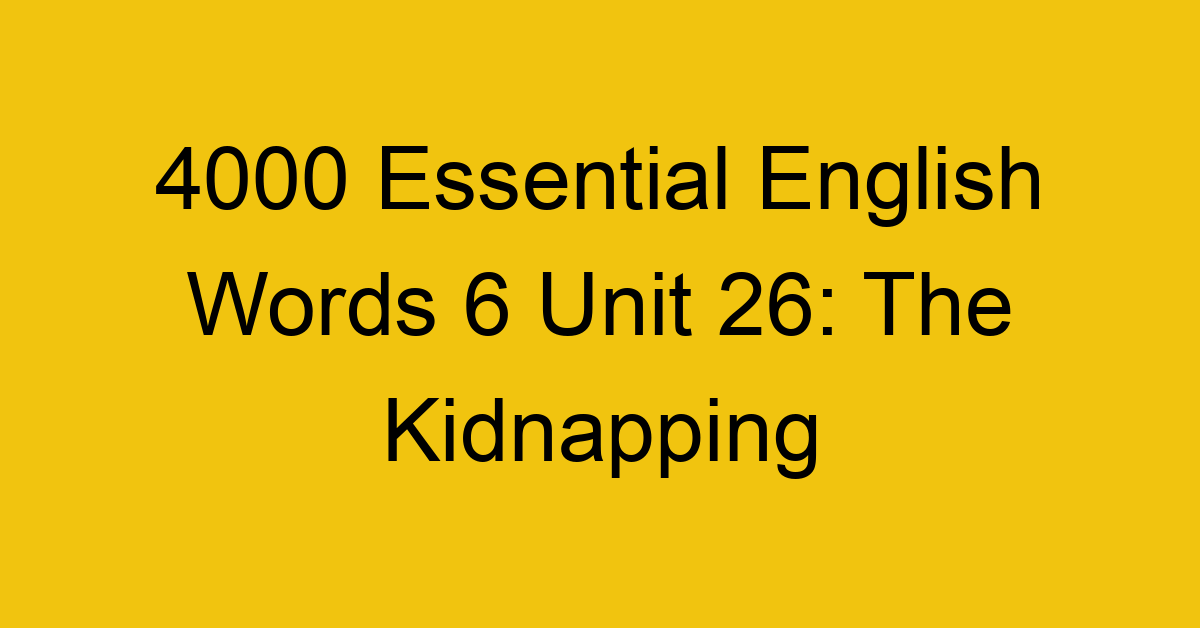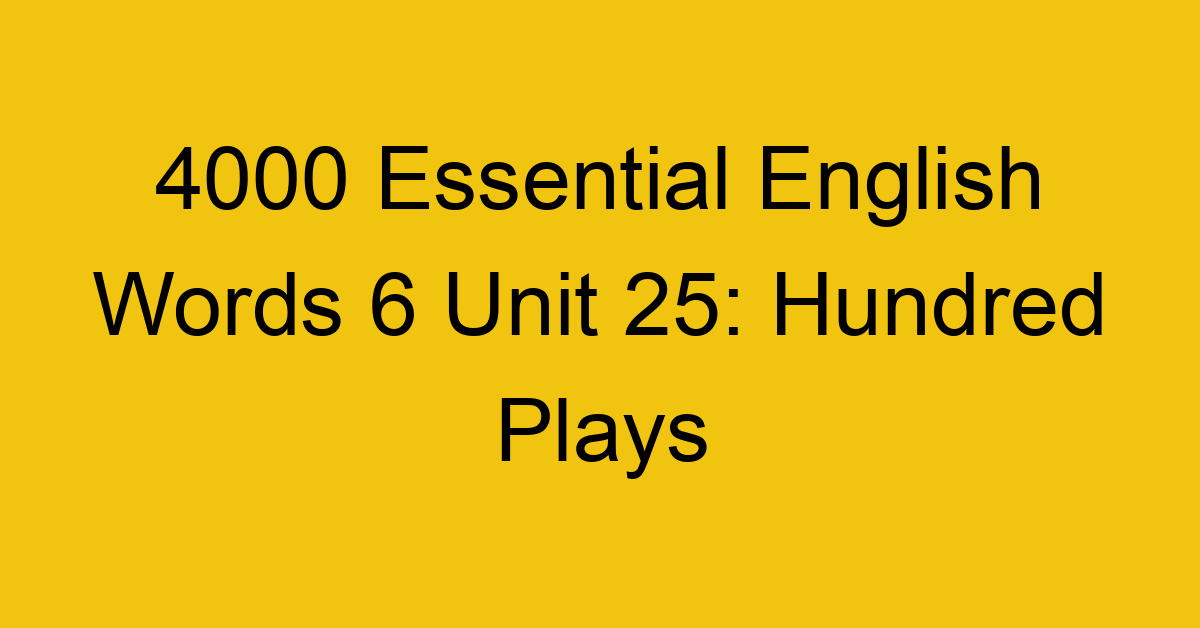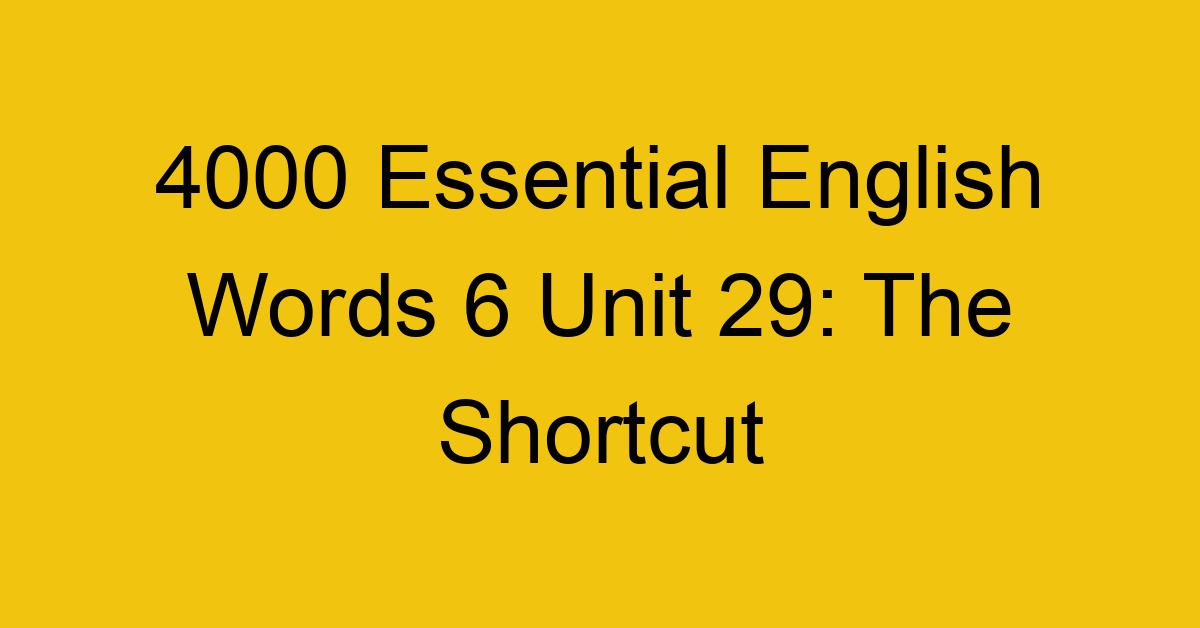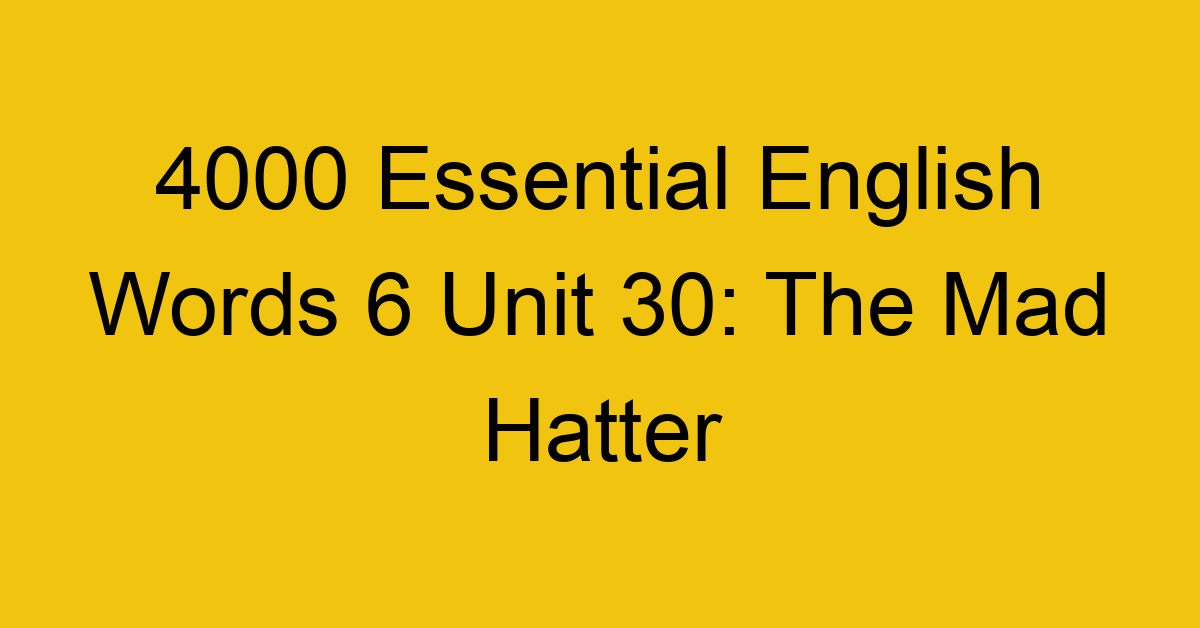4000 Essential English Words 6 Unit 28: The Lord and the Farmers
Word List
- adjoining [əˈdʒɔiniŋ] adj.
If something is adjoining, it is next to or joined with a building, or room.
→ I couldn’t sleep because the people in the adjoining room were loud.
- allege [əˈledʒ] v.
To allege something is to say that it is true without offering proof.
→ The little girl had alleged that her older brother hid her favorite doll.
- arch [ɑːrtʃ] n.
An arch is a curved opening formed under a structure such as a bridge or doorway.
→ The arch of the bridge was not high enough for the tall boat to pass underneath.
- assemble [əˈsembəl] v.
To assemble means to get together in one place.
→ The parents assembled to discuss ways to improve their children’s education.
- casualty [ˈkæʒjuəlti] n.
A casualty is a person killed or injured in a war or an accident.
→ The only casualty in the car accident was a woman who broke her arm.
- erect [iˈrekt] v.
To erect something means to build it.
→ The king erected two towers on the north and south sides of his castle.
- foul [faul] adj.
If something is foul, then it is not pleasant or enjoyable.
→ He wouldn’t let his dog drink from the water because it had a foul smell.
- hectare [ˈhektɛər] n.
A hectare is a unit of measure equal to 10,000 square meters.
→ His family farm covered many hectares.
- heighten [ˈhaitn] v.
To heighten an emotion means to increase the intensity of it.
→ The pleasant music heightened their enjoyment of the wonderful dinner.
- hospitality [ˌhɒspiˈtæləti] n.
Hospitality is friendly behavior and entertainment given to guests or strangers.
→ The travelers were amazed at the hospitality given them by the hotel’s staff.
- mansion [ˈmænʃən] n.
A mansion is a large and expensive home.
→ The mansion had thirty bedrooms, two kitchens, and a pool.
- outnumber [autˈnʌmbər] v.
To outnumber a group means to have a greater number than it.
→ The girls outnumbered the boys at the school by four to one.
- overjoyed [ˌouvərˈdʒɔid] adj.
If someone is overjoyed, then they are extremely happy.
→ He was overjoyed by the news of his promotion.
- pasture [ˈpæstʃər] n.
A pasture is an area of land covered with grass for animals to use as food.
→ The sheep were taken to a pasture where there was more grass.
- petition [piˈtiʃən] n.
A petition is a written request asking an authority to do something.
→ The citizens all signed a petition asking the mayor to repair the sidewalks.
- renovate [ˈrenəveit] v.
To renovate a building means to repair it or build new structures on it.
→ The old fire station was renovated into an apartment building.
- revise [riˈvaiz] v.
To revise something means to change or update it to make it better.
→ When the editor discovered certain facts were wrong, he revised the book.
- slab [slæb] n.
A slab is a large, thick, flat piece of stone, concrete, metal, or wood.
→ I looked at various slabs of stone to decorate my house.
- terrace [ˈterəs] n.
A terrace is an open area that is connected to a house or an apartment.
→ In the afternoons, she liked to sit on the terrace and check her email.
- turf [təːrf] n.
Turf is a section of grass and the dirt in which it grows.
→ After the game, the turf looked ragged.

